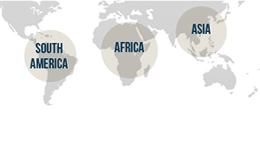Help Us Improve Access to the BCG Vaccine for Travelling Families!
November 27th, 2024 Read More »Special Considerations For Pregnant Travellers
One of the most common types of distressed phone calls we receive in our clinic is from women who have discovered they are pregnant and the trip is booked. The best thing to do is seek specialized advice. You need information. Here is an overview of issues to be aware of.
If you are just thinking of getting pregnant, ideally wait until at least one month after your trip is finished, and at least three months for some destinations.
Pregnant travellers
If a woman is healthy, well organised and determined, pregnancy should not be a barrier to travel. It may be the last chance to travel unfettered! Travel in pressurized aircraft is unlikely to pose a danger to the growing child in the early stages of pregnancy, although the mother will be at slightly increased risk of deep vein thrombosis. Book an aisle seat on the plane. Wear compression stockings during long journeys. Wear your seatbelt low, around the pelvis.
Where to go while pregnant?
Ideally discuss the destination with a travel doctor before travel plans are finalised. Pregnant travellers can safely visit many places, but travel to malarious areas is not ideal during pregnancy. A pregnant woman is twice as likely to be bitten by mosquitoes than her non-pregnant counterpart due to increased heat production and increased release of volatile substances from the skin surface. Malaria is more serious in pregnant women, and can lead to miscarriage, stillbirth, and even maternal death. Anti-malaria tablets are a problem in pregnancy.
Travel to high altitude areas above 4,000m is not recommended in pregnancy. Pregnant travellers visiting areas at altitudes of 3,000-4000m for more than two days, need specialised travel health advice. Avoid scuba diving, extreme physical exertion, and hot saunas.
The standard of local medical care should be an important factor when determining where to travel. Visiting countries which have unreliable medical services may spell disaster if complications of pregnancy develop.
What stage of pregnancy is best for travel?
The middle third of pregnancy is the best time to travel. After the first third, the risk of miscarriage is low, and morning sickness is usually over. In the last third, the mother will have a big stomach, and be more uncomfortable. She may need an afternoon nap and her feet may swell quite considerably during air travel. Airlines generally refuse to carry women after 36 weeks pregnancy, in case they go into labour. Travel insurance will usually not cover pregnancy related problems in the last third of pregnancy. Ideally, travel with a companion.
Vaccination during pregnancy
Some vaccines can be safely given to pregnant women. Live vaccines are usually best avoided. Experienced travel doctors will be able to help plan a safe vaccination schedule for you and your trip.
Particular challenges for pregnant travellers
All the usual ‘travelling well’ precautions apply.. doubly so. During pregnancy, women are more prone to illness e.g. bladder and respiratory infection. Carry antibiotics which are safe in pregnancy in case they are needed. Be particularly careful choosing food and drink while overseas. Dehydration, as well as diseases such as hepatitis E, toxoplasmosis, and listeriosis are more dangerous when pregnant. Any fever increases the risk of miscarriage in the early stages of pregnancy. If this is a woman’s first pregnancy, it is worth reading about what to expect as the weeks progress. Pregnancy makes women hungry, more easily tired, and the bladder needs constant emptying. Plan ahead. Dress conveniently for frequent trips to the toilet. Organise the journey so there is time for rest. Carry snacks in case safe food is not accessible. Try to eat a balanced diet. It may be worth taking vitamin supplements.
Bottom line
Go and see a travel medicine specialist – it is very hard to get detailed specific advice from the net or over the phone.
More info
UK Royal College Obstetricians and Gynacologists guidelines on air travel during pregnancy
Mpox and risk to Travellers
August 22nd, 2024 Read More »
Understanding Japanese Encephalitis: A Travel Health Advisory
June 10th, 2024 Read More »



